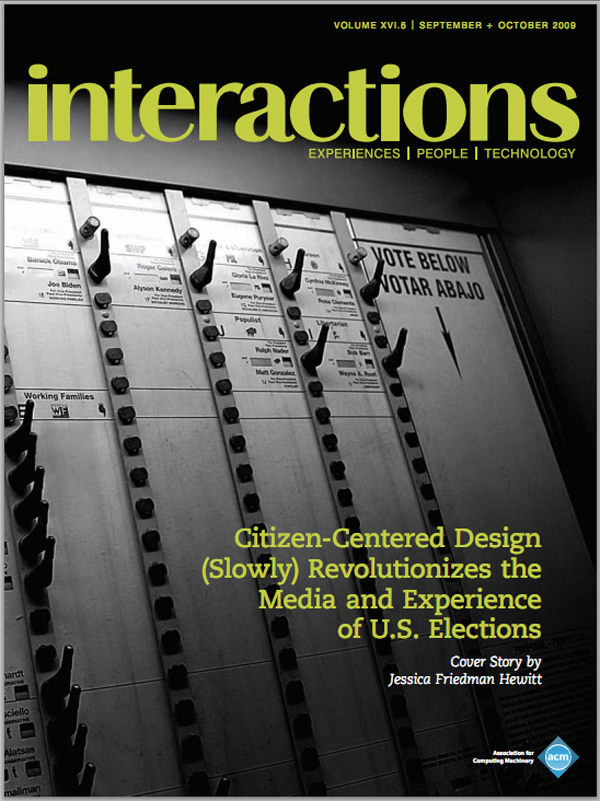Authors:
Virgílio Almeida
It has been said that the power of literature lies in its ability to give a voice to what the social or individual unconscious has not expressed. As computer science evolves beyond its boundariesinfluencing and being influenced by other disciplinesnew models and abstractions are required to expand the frontiers of computing research. Literature can work indirectly as a spring to propel new visions or provide models for problems in computer science. Jorge Luis Borges's stories provide numerous examples that have inspired many mathematicians and computer scientists [1]. A number of Borges's works"The Library of Babel," "Funes the Memorious," and…
You must be a member of SIGCHI, a subscriber to ACM's Digital Library, or an interactions subscriber to read the full text of this article.
GET ACCESS
Join ACM SIGCHIIn addition to all of the professional benefits of being a SIGCHI member, members get full access to interactions online content and receive the print version of the magazine bimonthly.
Subscribe to the ACM Digital Library
Get access to all interactions content online and the entire archive of ACM publications dating back to 1954. (Please check with your institution to see if it already has a subscription.)
Subscribe to interactions
Get full access to interactions online content and receive the print version of the magazine bimonthly.







Post Comment
No Comments Found